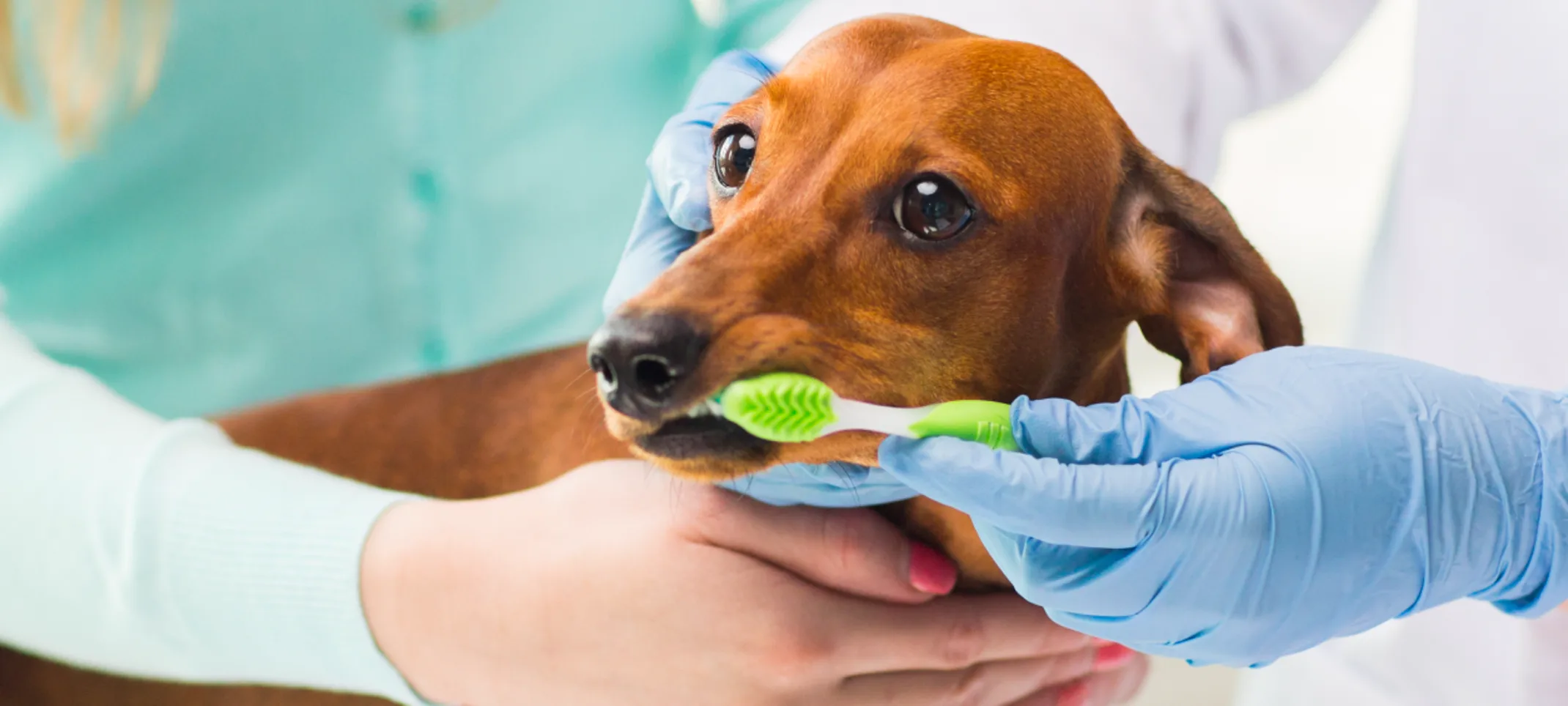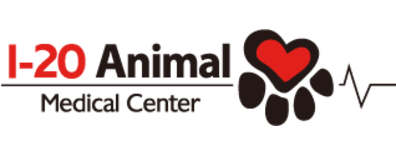I-20 Animal Medical Center
Chronic Ulcerative Paradental Stomatitis (CUPS) Treatments

Chronic ulcerative paradental stomatitis, or CUPS, is a relatively common and frustrating condition seen in dogs, though it is not as common as stomatitis in cats. It is an extremely painful condition, so it is no wonder dogs with CUPS lose their appetites!
It is often called “the kissing disease” because it occurs where the dog’s cheeks meet the teeth, or “kiss up” against them. For some reason, the teeth become an irritant to the tender buccal mucosa (cheek tissue inside the mouth). The cause is not yet known. The sores can be small or as big as your thumb. Consider it like a canker sore times 10. That’s how miserable this disease really is.
CUPS and periodontal disease are separate conditions. Some dogs will present with CUPS alone, while others will have both conditions. The disease appears to be more common in Greyhounds and Labrador retrievers, but it has also been seen in Maltese, Miniature Schnauzers and other breeds.
Symptoms can include severe halitosis, difficulty swallowing and difficulty eating. Another common sign is excessive salivation.
Other diseases that can cause similar symptoms as CUPS include pemphigus, bullous pemphigoid (autoimmune diseases) and various oral cancers. These diseases need to be ruled out since the treatments for autoimmune diseases differ from treatments for CUPS. A biopsy of lesions can help rule out cancer in dogs.
It is unknown why CUPS lesions develop in dogs. We do know that affected dogs are incredibly intolerant to dental plaque. In these dogs, even just a small amount of plaque can potentially lead to an inflammatory reaction and lesion.
Treatment starts with a very thorough cleaning. Spotlessly clean teeth don’t seem to irritate nearly as much as dirty ones do. An initial regimen of antibiotics with steroids helps immensely. A longer-term use of steroids is often indicated. Obviously, medication can only be a short-term solution. Immaculate home care, including brushing, is the better solution. It takes a dedicated pet owner to handle the burden of CUPS.
You must clean the dog’s teeth daily and use a Chlorhexidene rinse or toothpaste to not only clean the surfaces of the teeth but also to kill bacteria. Daily home cleanings and routine professional cleanings at I-20 Animal Medical Center are crucial. Our veterinary dental care center is well equipped to handle these difficult cases that require advanced treatment and handling.
We take CUPS treatment very seriously at I-20 Animal Medical Center. Any autoimmune disorder or antigen/antibody reaction is challenging to diagnose and even trickier to treat. As a Fellow in Veterinary Dentistry with many years of experience in veterinary dental care, Dr. Bloom is very qualified to handle this problem.
Stringent plaque control through professional cleaning (often every three to four months) and excellent home oral hygiene routines may resolve the problem. Supplemental antibacterial measures, like topical chlorhexidine rinses or gels, also help. In severe cases, topical anti-inflammatory preparations to modulate the inflammatory response may provide comfort. Discomfort caused by the ulcers complicates efforts to brush the dog’s teeth and give oral medications. In the worst cases, in which discomfort is severe and pet owners are unable or unwilling to brush the teeth, extraction of the adjacent teeth may be necessary to remove the contact surfaces on which plaque accumulates. Although this may aid in control of the lesions, it is not curative, as plaque grows on all mucosal surfaces in the dog’s mouth. In many cases, with complete extractions, animals continue to develop lesions due to hyperimmune response to the plaque.
These ulcers must be treated so your dog can have a better quality of life. We have numerous treatment options for CUPS at I-20 Animal Medical Center, and Dr. Bloom is one of the few veterinarians in the Metroplex who is qualified to treat this complex pet dental problem.
Schedule pet dental care at I-20 Animal Medical Center by calling 817.478.9238.
